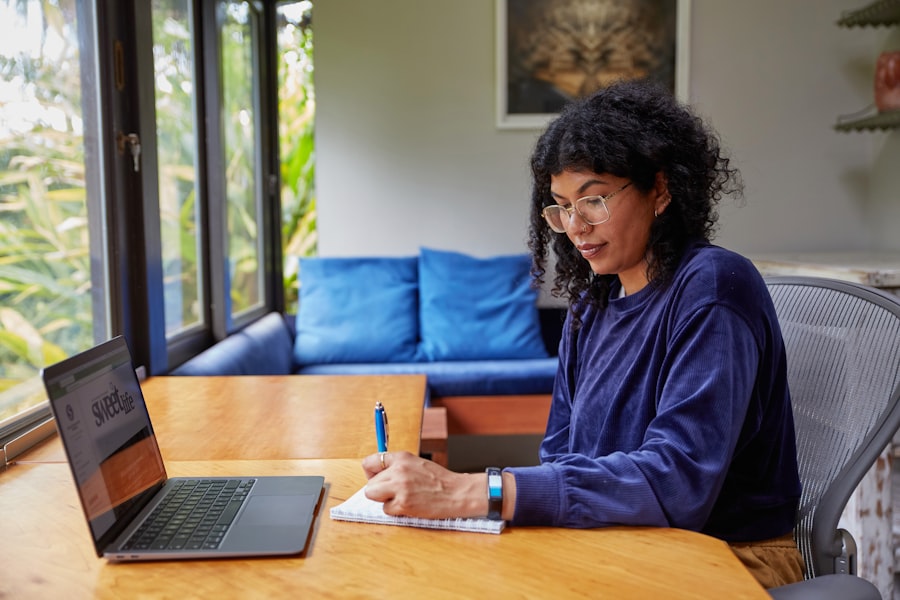Establishing boundaries is essential for effective remote work. It involves creating clear distinctions between work and personal time, which includes communicating work schedules to household members and designating periods for uninterrupted focus. Self-imposed boundaries, such as limiting work-related activities outside of office hours and on weekends, are equally important.
These practices promote a healthy work-life balance and help prevent burnout. Boundary-setting also encompasses the ability to decline additional responsibilities when necessary. Remote workers may experience pressure to take on extra tasks or extend their working hours.
However, recognizing personal limits and prioritizing well-being is crucial. This may involve respectfully refusing additional work or establishing realistic expectations with employers regarding workload and deadlines. By implementing these boundaries, remote workers can safeguard their mental and physical health while maintaining productivity.
Key Takeaways
- Setting boundaries is essential for maintaining work-life balance while working from home.
- Effective time management is crucial to stay productive and avoid burnout when working remotely.
- Creating a dedicated workspace helps to minimize distractions and signal to others that you are in work mode.
- Communicating with family and roommates about your work schedule and needs can help minimize interruptions and conflicts.
- Taking regular breaks and downtime is important for mental and physical well-being when working from home.
- Establishing a routine can help create structure and consistency in your remote work schedule.
- Seeking support from colleagues and flexibility from employers can help alleviate the challenges of working from home.
Time Management
Creating a Daily Schedule
Working from home requires discipline and structure to avoid distractions and stay on track. A daily schedule helps you stay focused and achieve your goals. Set specific work hours, schedule breaks, and allocate time for different tasks throughout the day.
Prioritizing Tasks and Setting Realistic Goals
Prioritizing tasks and setting realistic goals is crucial to maximize your productivity. Identify the most important tasks and break them down into manageable chunks. Use time management techniques like the Pomodoro Technique, which involves working in focused bursts with short breaks in between.
Boosting Productivity and Reducing Stress
By managing your time effectively, you can increase your productivity and reduce stress while working from home. A well-planned schedule helps you stay organized, achieve your goals, and enjoy a better work-life balance.
Creating a Dedicated Workspace

Creating a dedicated workspace is essential for maintaining focus and productivity while working from home. This may involve setting up a designated area in your home that is free from distractions and conducive to work. Ideally, this space should be separate from areas where you relax or spend time with family, such as a spare room or corner of a quiet room.
It’s also important to make this space comfortable and ergonomic to reduce the risk of physical discomfort or injury. This may involve investing in a supportive chair, ergonomic desk setup, and proper lighting. By creating a dedicated workspace, you can signal to yourself and others that when you are in this space, you are in work mode, which can help improve focus and productivity.
Communicating with Family and Roommates
Effective communication with family members or roommates is crucial when working from home. It’s important to have open and honest conversations about your work schedule, expectations for privacy and quiet, and any potential conflicts that may arise. This may involve setting ground rules for when you need uninterrupted time to focus, such as during important meetings or deadlines.
It’s also important to be respectful of others’ needs and schedules, and to find compromises that work for everyone involved. This may involve coordinating schedules, using noise-cancelling headphones, or finding alternative spaces to work when necessary. By communicating openly and respectfully with family members or roommates, you can create a harmonious living and working environment while working from home.
Taking Breaks and Downtime
Taking regular breaks and downtime is essential for maintaining mental and physical well-being while working from home. It’s easy to become engrossed in work and forget to take breaks, but doing so can lead to burnout and decreased productivity. It’s important to schedule regular breaks throughout the day to rest your eyes, stretch your muscles, and clear your mind.
In addition to taking short breaks throughout the day, it’s also important to take regular downtime in the evenings and on weekends. This may involve engaging in activities that help you relax and recharge, such as spending time with loved ones, exercising, or pursuing hobbies. By taking breaks and downtime, you can prevent burnout, improve focus and creativity, and maintain a healthy work-life balance.
Establishing a Routine

Creating a Sense of Structure
A routine helps you establish a sense of structure and normalcy, which is essential for staying motivated and avoiding procrastination. By following a set schedule, you can allocate specific times for work, rest, and leisure activities, ensuring that you make the most of your time.
Prioritizing Self-Care
Incorporating self-care activities into your routine is vital for maintaining your overall well-being. This can include exercise, meditation, or spending time outdoors. By prioritizing self-care, you can reduce stress, increase productivity, and maintain a healthy work-life balance.
Boosting Productivity and Well-being
By establishing a routine that includes self-care, you can boost your productivity and overall well-being. A consistent routine helps you stay focused, avoid distractions, and achieve your goals, leading to a more fulfilling and successful remote work experience.
Seeking Support and Flexibility
Seeking support and flexibility is crucial for maintaining mental and emotional well-being while working from home. This may involve reaching out to colleagues for collaboration and social interaction, seeking guidance from supervisors or mentors, or accessing resources for mental health support. It’s also important to be flexible with yourself and others, recognizing that there may be unexpected challenges or changes in your work environment.
By seeking support and flexibility, you can navigate the unique challenges of working from home with resilience and adaptability. This may involve being open to new ways of working, seeking help when needed, and being kind to yourself during times of stress or uncertainty. By seeking support and flexibility, you can thrive in a remote work environment and maintain a positive outlook on your work and well-being.
If you’re interested in learning more about the behavioral differences between UK and US consumers, check out this article. Understanding consumer behavior can be crucial for those working in marketing or sales, and can provide valuable insights for businesses looking to expand into new markets.
FAQs
What are some strategies for balancing remote work and personal life?
Some strategies for balancing remote work and personal life include setting boundaries, creating a dedicated workspace, establishing a routine, taking regular breaks, and communicating with your employer about expectations.
How can setting boundaries help with balancing remote work and personal life?
Setting boundaries can help you establish clear work hours and personal time, allowing you to maintain a healthy balance between your professional and personal responsibilities.
Why is creating a dedicated workspace important for remote work-life balance?
Creating a dedicated workspace can help you mentally separate your work life from your personal life, improving focus and productivity during work hours and allowing you to mentally disconnect from work when you’re off the clock.
How can establishing a routine contribute to a better balance between remote work and personal life?
Establishing a routine can help you create structure and predictability in your day, making it easier to manage your time effectively and ensure that you have dedicated time for both work and personal activities.
Why is it important to take regular breaks when working remotely?
Taking regular breaks is important for maintaining mental and physical well-being, preventing burnout, and improving overall productivity and focus during work hours.
How can communication with your employer help in balancing remote work and personal life?
Open communication with your employer about expectations, work hours, and flexibility can help you establish a mutually beneficial arrangement that allows you to effectively balance your professional and personal responsibilities.



